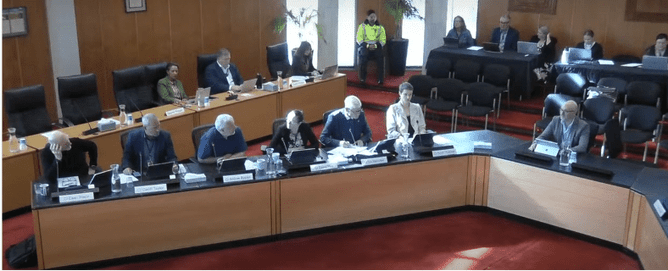The Waikato Wellbeing Project has recently provided feedback to Hamilton City and Waikato District Councils on their proposal to establish a joint Council-Controlled Organisation (CCO) for water services. On 6 May, Harvey gave evidence at Hamilton City’s hearing for the CCO proposal (below). Our submission and evidence was reported on by the Waikato Times, which you can read here: Waters CCO debate bubbles on despite majority submitter support | Waikato Times
While we support the need for efficient, compliant delivery of essential infrastructure, we are strongly encouraging both councils to look beyond regulatory compliance and ensure that future decisions explicitly support community wellbeing — particularly housing affordability.
We remain concerned that key documents such as the Waikato District Council Long-Term Plan often frame their purpose and outcomes through the lens of "ratepayers and customers" rather than citizens and communities. This fiscal framing, while valid in operational contexts, risks sidelining the broader role of local government in supporting equitable outcomes, social cohesion, and intergenerational wellbeing. Infrastructure is not just about technical delivery — it is about enabling people to live healthy, secure, and connected lives. Strategic planning must reflect that.
Our research shows that housing costs are now the main driver of hardship in the Waikato. While food prices have risen, house prices and rents have grown far faster than incomes. As a result, food insecurity now affects at least 18,000 households across the region. In Hamilton, over 38,000 people live in the most deprived areas of the city — areas which are often the most constrained in terms of 3-waters infrastructure. Without urgent investment to unlock affordable housing in these locations, deprivation will deepen, and communities will continue to be left behind.
We have therefore asked that the Statement of Intent for the new water CCO includes a commitment to improving housing affordability, particularly in high-deprivation areas, by prioritising infrastructure where it will unlock the most social value. We also recommend that councils regularly report to the public on how infrastructure planning and delivery — including through the new CCO — is supporting affordability and wellbeing. This is not just about pipes in the ground — it’s about ensuring every person in our region has the opportunity to thrive.
Our submission was very well received by Hamilton City Mayor and Councillors, and we look forward to sharing our ideas with Waiakto District Council later in May.
You can read our submissions to Hamilton City Council and Waikato District Council here:
· Hamilton City Council: Hamilton City Council 3 Waters Proposal, Submission.pdf
· Waikato District Council: Waikato District Long Term Plan


